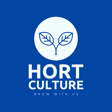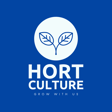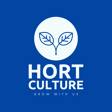
Hands in the Dirt, Head in the Clouds
In this nostalgic episode, Brett and Ray hold down the fort while their co-hosts are away, turning the podcast into a "man cave" for the day. What starts as a lighthearted check-in on their recent challenge to "sit under a tree" turns into a conversation tracing Ray's agricultural roots in eastern Kentucky.
Ray shares vivid memories of his childhood growing up on a farm in the eastern foothills—years spent with cattle, square bales, vegetables, and tobacco. He reflects on the sights, smells, and experiences that shaped his deep connection to the land and growing things, from running barefoot through hay fields to handpicking truck loads of beans with his siblings.
Listeners get an intimate portrait of life in Appalachian Kentucky during the 1980s and ’90s, the central role of tobacco in rural economies, and Ray’s unexpected return to agriculture via Berea College. With humor, humility, and insight, Ray describes the lessons learned—like knowing what you can and can't control—that have guided his path into Extension work.
This episode is a time capsule of Kentucky’s farming heritage and a tribute to the labor, love, and land that define it.
Questions/Comments/Feedback/Suggestions for Topics: hortculturepodcast@gmail.com


